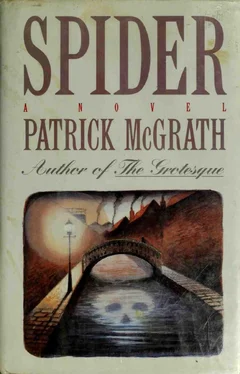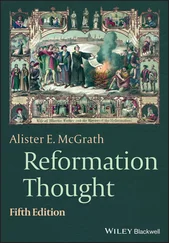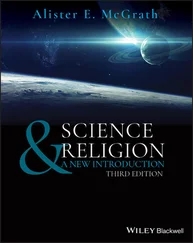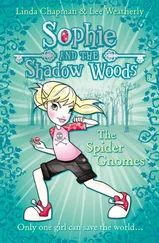Queer thoughts, no? I sighed. I bent down to pull my book out from under the linoleum. Nothing there! I groped. Momentary lurch of horror as I assimilated the possibility of the book’s absence. Theft? Of course—by Mrs. bloody Wilkinson, who else! Then there it was, pushed just a bit deeper than I’d expected; no little relief. My father was stumbling blindly through a fog, barely conscious of his whereabouts, the chaos within him further befuddled with the beer he’d just drunk. Great relief, in fact; what on earth would I do if she got her hands on it? Is the best place for it really under the linoleum? Isn’t there a hole somewhere I can tuck it into? The streetlamps were smears of light in the fog, flecks and splinters of weak fractured yellowy radiance that picked up the glitter of wild light in his eyes, the fleeting blur of whiteness of his nose and brow as he charged by. Somewhere I’ve seen a hole, I know I have, but where, where? On he blundered until at last he saw a building aglow, and like a moth to the flame he drew near, and found himself outside the Dog and Beggar. In he went, into the dry warmth of the place, and suddenly there was the smell of beer and tobacco in his nostrils and the murmur of talk in his ears. I just can’t afford to take the chance.
For a few moments he stood there in the doorway, his chest heaving violently as he brought his breathing under control. His eyes were still wild, his skin damp and sleek with the wet. He glanced about the room, with its scattering of small round tables; there was a thin drift of sawdust on the bare wood floor, and standing at the bar was an old man reading the racing results. Two more old men sat at a table near the fireplace, where a small coal fire was burning, their lips working silently over gray toothless gums. All the talk came from the saloon bar, beyond the glass partition, and from that direction Ernie Ratcliff now appeared. Glancing at my father as he laid a thin hand upon a beerpump, he murmured: “Well come in, Horace, if you’re coming.” And my father, his passions still roiling in his breast, nodded blankly once or twice and closed the door. Like a man in a dream he approached the bar. Ratcliff noticed nothing amiss—or if he did, it was not his way to mention it. “Nasty out,” he remarked, “real pea-souper. Pint of the usual, is it, Horace?” My father nodded, and a few seconds later had carried his pint to a table and sat there gazing at the fire.
Then all at once he seemed to awaken, to recognize his surroundings. He picked up his glass of beer and drained almost the entire pint in one draught. He rose to his feet and made his way back to the bar. “Same again?” said Ratcliff amiably. “Nice drop, this”—and he pulled my father another pint.
An hour later my father was once more out in the fog. He had not grown calm in the meanwhile, very far from it. The manic turmoil had subsided, but from that subsidence had emerged a decision. Decision, I say; it was more of an impulse, even an instinct, than a decision, a sort of simple blind drive toward the satisfaction of a hunger—and I need hardly tell you what that hunger was. Unsteadily he’d emerged from the Dog and Beggar, buttoned his jacket and tied his scarf about his throat. Then he’d set his steps toward the Earl of Rochester, and been quickly swallowed by the fog, which was thicker than ever.
By the time he reached the Earl of Rochester my father appeared to be under control. He did not lurch, he did not slur his speech, but he was in fact drunk, and no less in the grip of instinct than he had been when he left the Dog. The Rochester was full when he arrived; this was a Friday night, and it was already close to nine. He pushed open the door and stepped quickly inside, a wisp or two of the fog clinging to him as he entered. A wave of chatter and laughter, smoke and warmth and light rolled over him. He pushed his way through to the bar and ordered whisky. When he had it he turned, looking for Hilda.
She was at a table in the corner with Nora and the rest. She glanced up, then promptly rose to her feet and made her way through the crush toward him. Odd, this; you would expect her to make him come to her. I think I know what accounted for her behavior in the Rochester that evening, and for much that occurred afterwards, for I believe she’d learned something about my father since the events in the alley the previous night, something specific; when the time comes I shall explain all this in detail. Now, though, she came pushing through the crowd, her face flushed and a glass of port held aloft in one hand like an ensign, and as she came she bantered with the men, who made way for her, laughing, as a brisk sea parts before a vessel under sail. Then she was beside him, and as he had the first taste of the whisky the bite of the spirit added fuel to the desire he’d been feeling since nightfall. With one boot on the brass rail at the bottom of the bar, and his eyes never leaving her face, he pulled out his tobacco. “So, plumber,” said Hilda—she too had been drinking, and she recognized the wildness in him—“feeling better tonight, are we?”
My father was rolling a cigarette, his head lowered and his fingers busy with Rizla paper and Old Holborn, but his eyes were still on her. When it was rolled he lit it with a match and said: “Come down the allotments.”
Yes, she could feel how wild he was, and it excited her. “Down the allotments?” she said, lifting her eyebrows and resting her tongue on her top lip. He turned toward the bar, nodded, and drank off the whisky. “When?” she said.
For a few moments he was silent, waiting for the barmaid. He bought himself another whisky, a sweet port for her. They stood among the milling drinkers, and it was as though invisible threads bound them together. “I’ll go now,” he said, “you come down in a bit.”
Hilda brought her port to her lips. She allowed a small pause to occur. “All right, plumber,” she said, “I don’t mind if I do.”
I remember where I saw a hole: it’s behind the gas fire. It used to be a fireplace. There’s an empty grate and a chimney; that’ll do me nicely, I’ll just slip it in there. But I must stop for a minute, all night I’ve had the strangest sensation in my intestines, as though they were being twisted like a length of rubber hosing. Something odd is going on down there, though just exactly what I don’t know; probably something I ate.
On I scribbled, on through the hours of darkness, getting down on paper my exact and detailed reconstruction of that terrible night, all I’d thought about during those long, empty years cooped up in Canada. I was in my bedroom when, not long after my father had stormed out, my mother called up the stairs to me. I came out onto the landing and there she was, down by the front door in her coat and headscarf. “I’m going out, Spider,” she said, “I shan’t be long.” She had put some lipstick on her mouth, I noticed, and a spot of rouge on each cheek—this was how she looked when she went out with my father on Saturday nights. It was only Friday, but after what had happened she could clearly sit no longer in the kitchen. “I’m going to meet your father,” she said, the last words I ever heard her say in life. I saw her leave the house through the back door, and I watched her as she stood pulling on her gloves in the yard. She’d left the light on in the kitchen and for a moment she was bathed in its glow; this I saw from my bedroom window. Then down the yard she went, a neat little woman off to meet her husband, and soon she was swallowed by the fog and lost to my view. But I was still with her, you see, I was still with her as I leaned on my windowsill and clouded the glass with my breath, I was with her as she moved down the alley, clutching her handbag, cautiously advancing by the dim gleam of the lamppost at the end of the alley. She did not know if my father was in the Dog, nor what sort of reception to expect should she come upon him there, but she could no longer sit weeping in the kitchen as he stayed out drinking and seethed with resentments she did not understand but which apparently, and through no fault of her own, were directed at her. She reached the Dog, stepped bravely into the public bar, and walked right up to the counter. “Evening Mrs. Cleg,” said Ernie Ratcliff. “Looking for your old man? He was here, but I believe he’s gone.” He peered about the room with his little weasel eyes. “No,” he said, “no sign of him, Mrs. Cleg.”
Читать дальше












